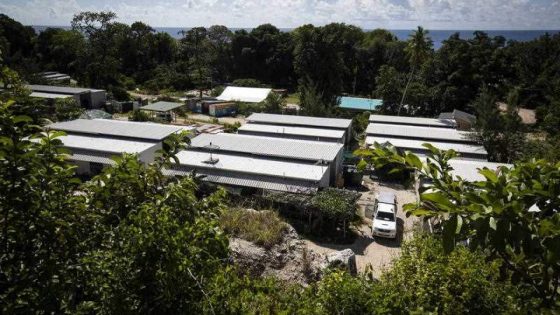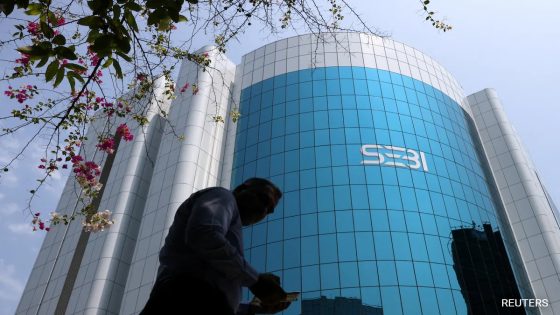This article contains references to suicide.
A group of asylum seekers who arrived in remote Western Australia by boat earlier this year have reported being distressed and having suicidal thoughts over their experiences in immigration detention.
Thirty-nine people from India, Pakistan, and Bangladesh were found at Beagle Bay, north of Broome, in February, .
They were subsequently transferred to Nauru where they are being held in immigration detention while their protection claims are assessed.
The group, which is mostly made up of men in their 20s and 30s, haven’t received clear information about how long they will be held in offshore detention or how long their claims will take to process, according to the Asylum Seeker Resource Centre (ASRC).
“People are feeling very depressed, especially hearing what happened to people who were sent to Nauru in the past,” one of the detainees told the ASRC.
“We are scared. The security officers threatened to send us to jail if we do something wrong. But we haven’t done anything wrong.”
Some of the men said they were offered return resettlement packages before applying for protection or having their protection claims assessed, with a few reporting they’d been told they could be in detention for up to 10 years.
“I miss my family. I want to get out of here,” one detainee said.
“We don’t know what will happen to us,” another said.
“We have bad mental health because we are apart from our families and we don’t know when we will see them again.”
The men said they had their smartphones taken off them when they arrived on Nauru and were only given access to basic phones.
“One man’s uncle died and he asked the guards if he could video call his family, but he wasn’t allowed to,” one of the detainees said.
Heidi Abdel-Raouf, the ASRC’s detention casework policy lead, said speaking to the men about their experiences was “heartbreaking”.
“Many had never even heard of Nauru and had no idea about how brutal this government’s treatment of people seeking safety can be,” she said in a statement.
“What they need right now is answers about their future and access to specialised trauma support as they deal with the aftermath of what they’ve left behind in their home countries and the ongoing trauma of being isolated and detained on Nauru with no certainty about their future.”
Detainees on Nauru were previously able to access specialised trauma support, but that responsibility now lay with general health providers International Health and Medical Services (IHMS) which lacked the “expertise and experience” to provide the service, the ASRC said.
The ASRC said it is: “extremely concerned men do not have access to specialised trauma counselling with many reporting emerging mental health concerns such as stress, anxiety, depression, isolation and suicidal thoughts”.
A spokesperson for the Department of Home Affairs told SBS News on Wednesday that people transferred to Nauru were “treated with respect and dignity and in accordance with human rights standards”.
“The Australian government has contracted appropriately trained and experienced service providers to support regional processing countries to ensure that the needs of transferees are adequately met, including the provision of health and welfare services,” they said in a statement.
All detainees on Nauru are given a mobile phone and internet access, the spokesperson added.
As of 1 March, 54 people were undergoing regional processing on Nauru, according to the Department of Home Affairs.
At least another 10 asylum seekers had been transferred to Nauru after arriving in the Kimberley over the weekend, the ASRC said.
It said it was concerned that unless the detainees’ claims were urgently prioritised there was a “high risk” they could be coerced into returning to their home countries where they face “persecution and risk of violence or death”.
Labor maintains a policy of offshore detention and processing for asylum seekers who arrive by boat.
“Unauthorised maritime arrivals will not settle in Australia,” the Home Affairs spokesperson said.
“Returns assistance is available for UMAs (unauthorised maritime arrivals) seeking to return voluntarily to their country of origin or a country to which they have right of entry.”
Readers seeking crisis support can contact Lifeline on 13 11 14, the Suicide Call Back Service on 1300 659 467 and Kids Helpline on 1800 55 1800 (for young people aged up to 25). More information and support with mental health is available at and on 1300 22 4636.
supports people from culturally and linguistically diverse backgrounds.



